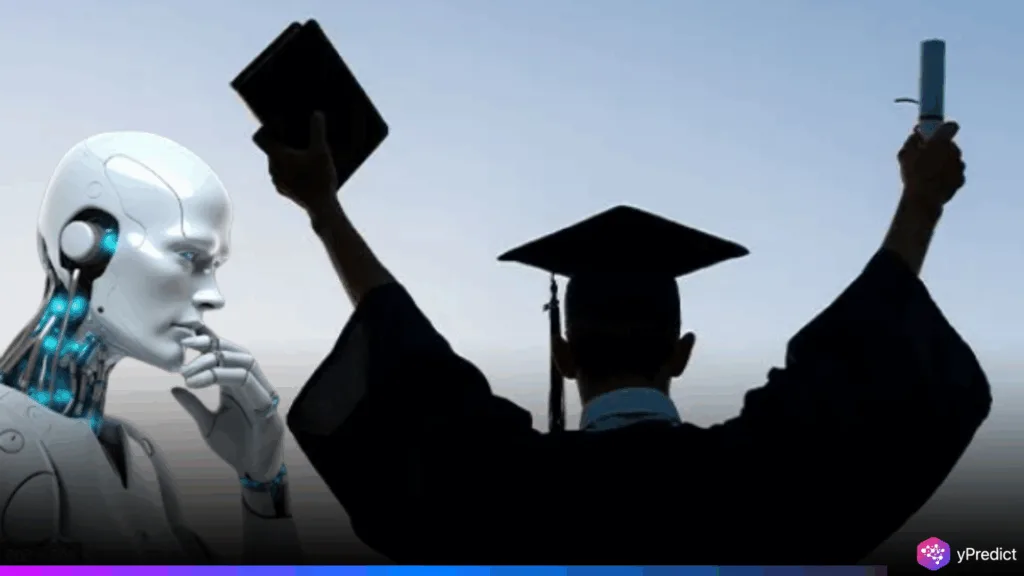
In a labor market that is already evolving, millions of recent graduates are beginning their careers. Despite years of training, they are confronting an economy where AI job displacement is real and growing. Additionally, businesses are using advanced AI tools to replace traditional entry-level positions.
Experts, corporate executives, and recent graduates all voice concerns about automation becoming a crisis. In the tech and finance sectors, artificial intelligence is making it more difficult for recent graduates to land steady jobs.
Are New Graduates Ready for AI Replacements?
Recent data shows unemployment among college graduates has risen to 5.8%, sparking concerns across sectors. Additionally, according to Oxford Economics, this growth is concentrated in technical fields where AI automation has accelerated. The industries most impacted are finance and software engineering.
Additionally, executives are turning their attention to efficiency and cost reduction. Many have taken an “AI-first” stance, determining whether machines can perform tasks before employing a human. One tech company now only hires engineers with at least an L5 degree. Their justification is that AI coding tools are now capable of handling lower-level tasks with efficiency. This suggests that there is less demand for junior employees in the labor market.
Startups Embrace AI Job Displacement to Scale
Behind the numbers, the real shift is happening within company strategies. Some startups now operate with only a handful of employees, where dozens once worked. One executive talked about replacing a 75-person team with a single data scientist using intelligent AI tools.
Additionally, Anthropic recently launched Claude Opus 4, a chatbot capable of coding for hours on end. These tools are changing team structures in addition to being productive. Therefore, economists and policymakers are concerned about the extent of AI job displacement and are troubled by these developments.
Visuals from Anthropic’s demo reveal how far automation has come. Tasks that once took days are now done within hours. Thus, for young professionals, this creates a moving target for skill relevance in addition to reducing opportunities. For this reason, when assessing career options, many people now take the risk of AI automation into account.
Wider Effects of AI Job Displacement Unfolding
AI companies have a clear plan to extend automation beyond technology and finance, such as marketing and consulting. According to Anthropic CEO Dario Amodei, AI job displacement could affect half of all entry-level white-collar roles in five years.
Even firms outside of Silicon Valley are testing automation solutions. However, missteps do happen. For example, Klarna used bots to replace human customer service representatives, but they later changed their minds after receiving criticism. This demonstrates the risks associated with rushing into AI automation.
The larger issue is that fewer entry-level positions translate into less training and mentoring. As a result, young workers might not get the training required for leadership roles as companies demand more output with fewer resources. Both the labor market and long-term career pathways are changing as a result of this development.
Will AI Take Your First Job?
Despite the challenges, some graduates see opportunity amid uncertainty. Many are leaving traditional jobs, starting their businesses, or pursuing careers in the creative industries.
Additionally, graduates are realizing that automation is here now and not a threat to the future. They must therefore be flexible, creative, and prepared to pick things up more quickly than ever before if they want to stay ahead. Although AI automation might increase output, its effects on the labor market and human potential are still being felt.






